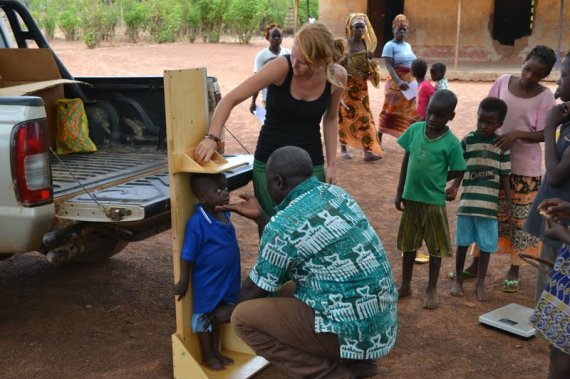Ilse de Jager measures the height of children in an African village.
In the N2Africa (Nitrogen to Africa) project, professor of Plant Production Systems Ken Giller promotes the cultivation of pulses in Africa, because these leguminous plants bind nitrogen from the air, thereby improving soil quality. This contributes to improved harvests and possibly therefore to improved nutrition for small farmers in Africa. Ilse de Jager, whose supervisors are Inge Brouwer from Human Nutrition and Ken Giller, is studying whether this is actually the case.
She started with a literature study of the nutritional value of the various pulses used in N2 Africa and to what extent these soya beans, runner beans and cowpeas supplement the local diet. She then investigated in Ghana and Kenya whether there was less undernutrition in villages with N2Africa than in villages that fell outside the project. She noted that the diet of children under five years of age in N2Africa villages in Ghana contained more nutrients than that in villages without the project, but she was unable to establish whether the children’s growth rate – a measure of nutritional status – had improved in these villages. In follow-up research she wants to gain more insight into the relation between farming systems and improved nutrition among small farmers in Africa. What N2Africa will do with the 5000 dollars, De Jager does not know. ‘Perhaps it will be added to my research budget.’

